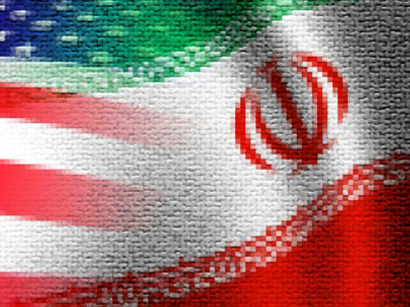Zarif has recently said that US congressmen are willing to develop parliamentary diplomacy with Iran. He said Iranian legislators and scholars may have ties with their American counterparts, and such times can be formed after permission by Ayatollah Ali Khamenei.
Zarif also said that some US congressmen, as well as academics expressed interest in better ties.
Saif Shahin believes both Zarif and Iranian president Hassan Rouhani are trying to rebuild Iran`s image as a responsible member of the international community.
"This image took a serious beating under Mamoud Ahmadinejad, during whose time Iran came to be seen, even by friends, as reckless and immature," he said. "The new administration is trying to showcase Iran as a sensible nation that understands how international diplomacy works and is willing to play by the rules of the game."
Zarif went on to note that Zarif`s intentions about developing such ties with the U.S. should be seen under this light.
"For Iran, the important thing is not whether such ties materialize. By making these statements, he mainly hopes to alter how Iran is perceived by the world, and especially the American public," Shahin underscored.
"When Iran`s FM talks about parliamentary diplomacy and exchange of scholars, Iran comes across as a perfectly reasonable nation that wants to live in peace," Shahin said. "It makes much harder for the United States or Israel to continue talking about striking Iran without appearing rash and belligerent themselves."
"After all, how can you justify attacking a nation that is inviting your legislators and scholars for a visit?," he added.
The expert also noted that at the same time, such talk also makes it easier for President Obama to offer it a better nuclear deal without himself facing the charge of "appeasement."
"Obama`s phone talk with Rouhani underlines this dynamic. If Zarif`s propositions do indeed work out, then it would be a bonus for Iran," Shahin underscored.
"Ayatollah Ali Khamenei did express reservations about the phone call, but only mildly. In fact he said he supports Rouhani`s efforts. I am quite certain that Rouhani has embarked on his diplomatic endeavor with his blessings," Shahin said.
"However, Iranian presidents come and go, but the Supreme Leader stays. Khamenei just wants to make sure that if these diplomatic efforts fail, he doesn`t have to share any of the blame," the expert said.
Mohammad Javad Zarif said in an interview to IRIB News a few days ago that the majority of Americans say that Iran`s nuclear issue should be solved peacefully.
He mentioned a recent poll conducted in the US, according to which, 75 percent of the Americans believed in diplomatic and peaceful solutions to resolve the nuclear dispute, while several moths ago, the U.S. nation had different views on Iran.
"The bulk of the Iranian public is strongly in favor of better ties with the United States and normal relations with the rest of the world," Shahin said, adding that however there are some circles that oppose such strategy.
"There are some hardliners who oppose all this, but they do so mainly because it suits their own politics. They may continue to make noises against these efforts because it will allow them to say "I told you so" if these efforts fails, but they will accept it if things work out," the expert noted.
More about:
















































